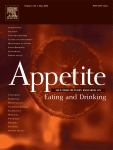New paper: Child eating behaviors, parental feeding practices and food shopping motivations during the COVID-19 lockdown in France: (How) did they change?

From March until May 2020, a first strict lockdown took place in France to limit the spread of the highly contagious coronavirus SARS-CoV-2. Schools were closed and working from home was enforced, which had a profound impact on families’ habits. ESR7, Kaat Philippe, and her colleagues conducted a study with 498 French families to investigate the possible impact of the lockdown on families’ eating and feeding habits.
Results of the online survey showed that many parents reported some changes in their child’s (aged 3-12 years) eating behaviors, their feeding and cooking practices, and their food shopping motivations, compared to the period before the lockdown. Children showed a higher appetite and more food enjoyment, they asked for food more often, and ate more in response to their emotions.
Parents became a bit more permissive: they imposed less rules, used more soothing with food and granted more autonomy to their child. Parents described to buy more pleasurable and local, seasonal foods than before the lockdown, and they also reported to prepare more home-cooked meals with the child.
Interestingly, the results revealed that children’s level of boredom, parental stress and socio-demographic characteristics played a significant role in these changes in eating and feeding habits. These insights can be of interest for new studies and interventions aimed at favoring healthy eating within families.
The paper is published in Appetite:
Philippe, K., Chabanet, C., Issanchou, S., Monnery-Patris, S. (2021). Child eating behaviors, parental feeding practices and food shopping motivations during the COVID-19 lockdown in France: (how) did they change ? Appetite, 161, 105132. https://doi.org/10.1016/j.appet.2021.105132
covid-19, eating habits, ESR7, lockdown, parental feeding practices

